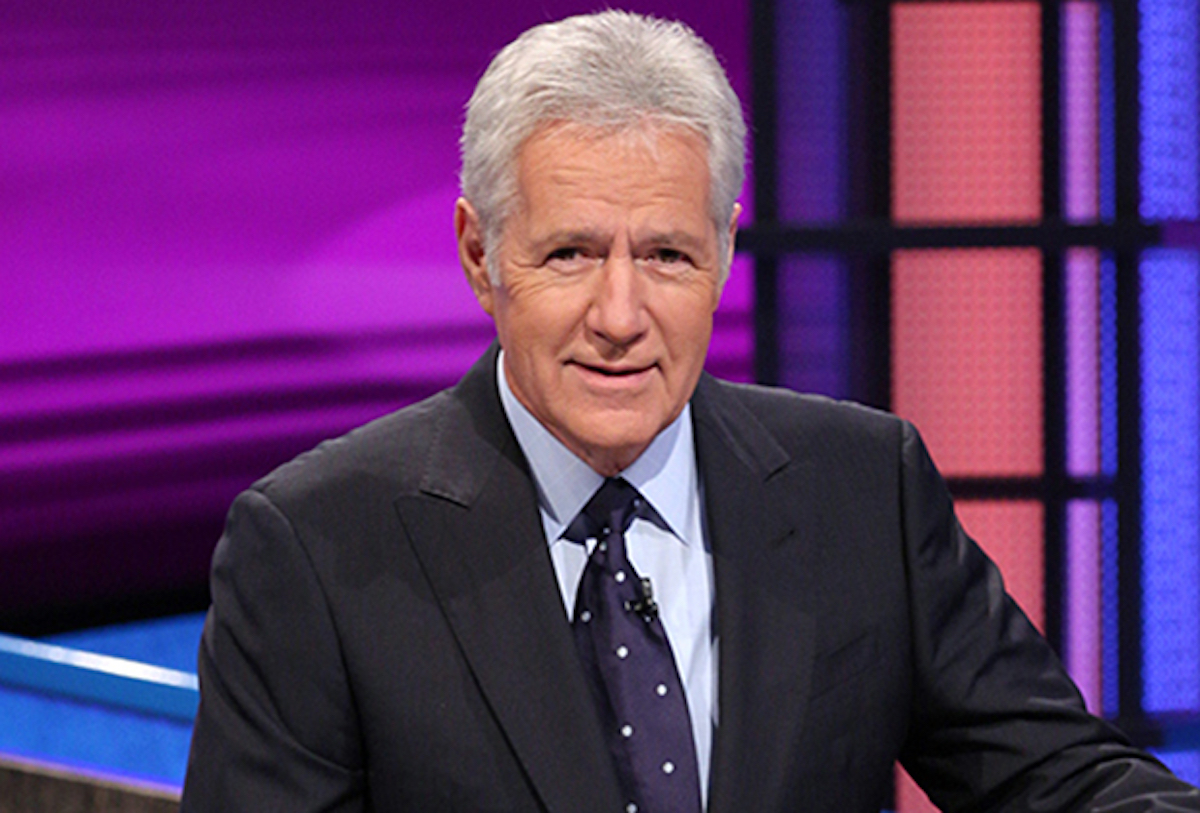Ultimate Dedication
- In a tribute to Alex Trebek, we are told that he filmed new episodes less than two weeks before his death.
- Pancreatic cancer is one of the most difficult types of cancers to treat, and symptoms often don’t present themselves until the disease has spread.
- Experts recommend those facing cancer should find activities that bring them joy; a positive attitude can really impact treatment outcomes.
In an Instagram video, Jeopardy!’s Executive Producer Mike Richards took a moment to honor Trebek, who passed away on Sunday at 80-years-old after a year-and-a-half long battle with stage 4 pancreatic cancer. In the tribute, Richards says the loss of Trebek is a devastating blow to the Jeopardy! family and tells us that the late and great host never stopped working even weeks up until his passing. As the announcement went on, Richards struggled to choke back tears.
Read MoreTrebek told us in March 2019 that he had been diagnosed with stage 4 pancreatic cancer, and went through chemotherapy as well as an experimental therapy for treatment. Despite the highs and lows of treatment, Trebek fought bravely and “beat the odds” by surpassing the one-year-survival rate of the disease. Currently, the one-year survival rate for pancreatic cancer patients is just 9%. He would often speak publicly about his health, and that’s made a huge impact on raising awareness about pancreatic cancer and making people be proactive about their own health.
Navigating Pancreatic Cancer
Pancreatic cancer is known as one of the most difficult types of cancers to successfully treat, and a lot of this has to do with it often being diagnosed in later stages. According to Dr. Anirban Maitra, co-leader of Pancreatic Cancer Moon Shot at MD Anderson Cancer, 80% of pancreatic cancer diagnoses are caught when it has advanced, and it’s because symptoms don’t often present themselves in earlier stages.
Another reason why this disease is hard to treat is because medications have a hard time getting to the cancer cells. This has everything to do with the stroma a barrier around cancer cells which prevents medications, such as chemotherapy and radiation, from eliminating them. This makes targeting and kill cancer cells extremely difficult, which means the disease can progress into later stages and spread throughout the body.
Related: Detecting Pancreatic Cancer Early Is Crucial
"Think of pancreatic cancer as an oatmeal raisin cookie and the raisins are actually the cancer cells, and the cookie part is actually all the stroma around it," Dr. Allyson Ocean, a medical oncologist at Weill Cornell Medical Center, tells SurvivorNet. "And imagine having to navigate through all that stroma for a treatment to be able to get into a cell to kill it. So that's why the treatments just really aren't good enough to penetrate the cancer. But we're improving, we're getting better treatments."
Dr. Allyson Ocean explains why pancreatic cancer is so hard to treat
Do What You Love During Cancer
During cancer treatment, it can be hard to focus on anything except your treatment. However, Trebek is the perfect example that it's important to take a moment and focus on something that makes you genuinely happy. Clearly Trebek found a career that he looked forward to waking up to everyday. Nonetheless, no matter what you enjoy doing, experts recommend you try to take some time out of your day a few times a week and really enjoy those special pockets of joy.
"We know from good studies that emotional health is associated with survival, meaning better quality of life is associated with better outcomes," Dr. Dana Chase, a gynecologic oncologist at Arizona Oncology, tells SurvivorNet. "So working on your emotional health, your physical well-being, your social environment [and] your emotional well-being are important and can impact your survival. If that's related to what activities you do that bring you joy, then you should try to do more of those activities."
Like Richards said, Trebek loved his job (and we loved him), and that’s the perfect example of why these moments of joy are so important and can mean so much.
Dr. Dana Chase encourages those facing cancer to find moments of joy during treatment
Learn more about SurvivorNet's rigorous medical review process.


